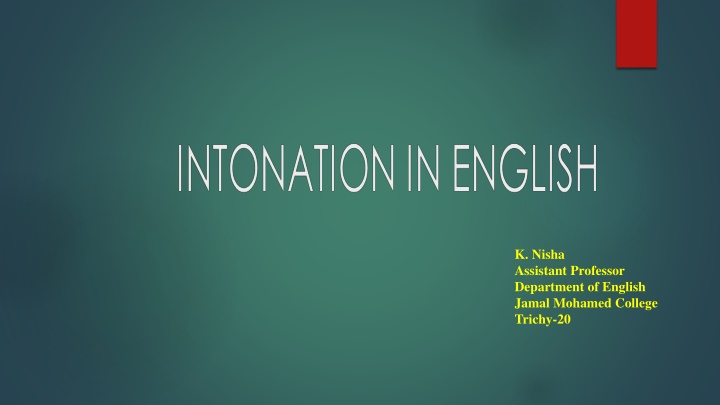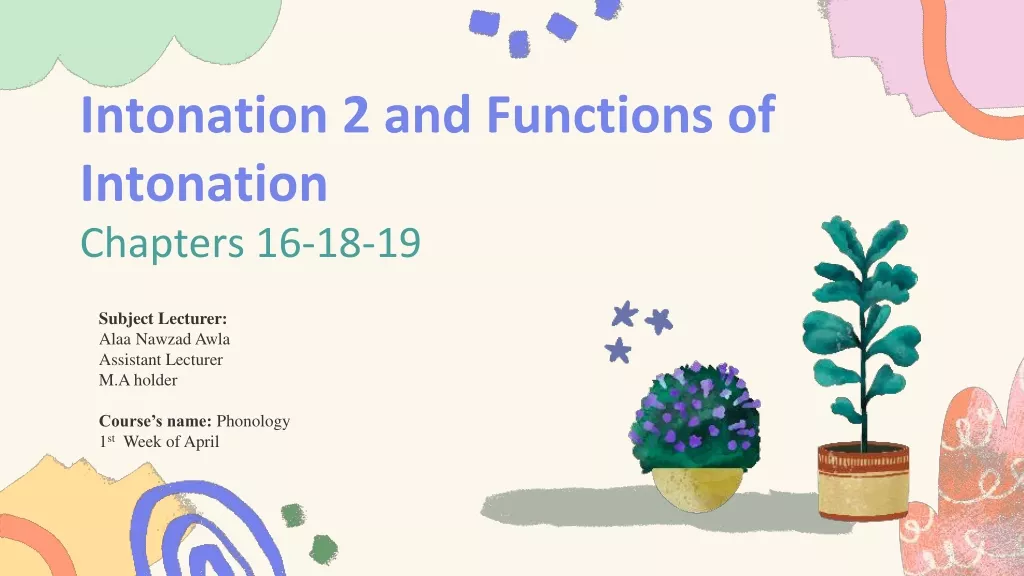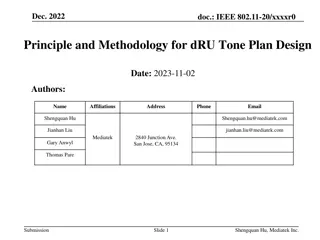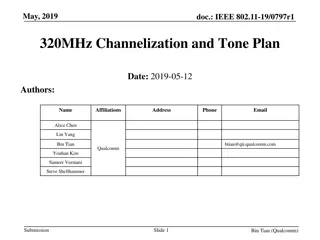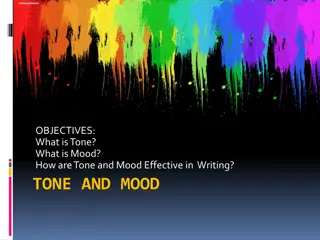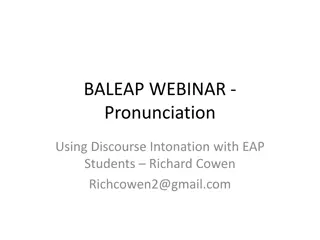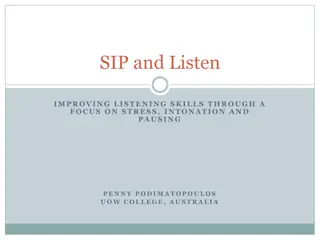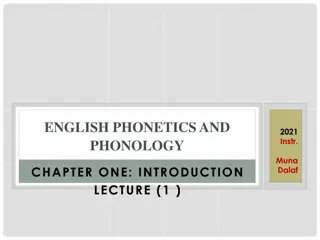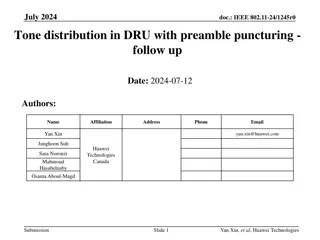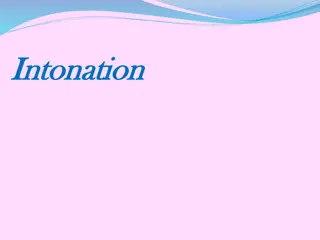Mastering English Intonation: Key Principles and Tone Groups
Discover the importance of intonation in English speech and how it can convey different meanings through primary stress and tone choices. Explore the significance of tone groups and the impact of pitch movement on word prominence in sentences. Learn how the selection of tones, such as falling tone, influences statements, questions, commands, and exclamations, shaping the overall communication process.
Download Presentation

Please find below an Image/Link to download the presentation.
The content on the website is provided AS IS for your information and personal use only. It may not be sold, licensed, or shared on other websites without obtaining consent from the author.If you encounter any issues during the download, it is possible that the publisher has removed the file from their server.
You are allowed to download the files provided on this website for personal or commercial use, subject to the condition that they are used lawfully. All files are the property of their respective owners.
The content on the website is provided AS IS for your information and personal use only. It may not be sold, licensed, or shared on other websites without obtaining consent from the author.
E N D
Presentation Transcript
K. Nisha Assistant Professor Department of English Jamal Mohamed College Trichy-20
INTONATION IN ENGLISH If the speaker utters the sentance without ups and downs he can t convey the intended meaning to the listener. We differentiate a word with Primary stress . Due to the Primary stress there are two tones, Kinetic and Static. Intonation can tell what kind of sentance we utters. A change in intonation can bring about a change through the words remain the same.
Three basic principles to speak in English with correct intonation The spoken sentance fail broadly into certain group called Tones groups . The correct location of the receives the Primary stress . The choice of Tone: This choice is very important because the meaning of the sentance depends upon the tone we choose.
TONE GROUPS When we speak we make pauses. These pauses in the course of the sentance, give rise to Tone group . Do the work - single Tone group. When I do the work, I understand it s difficulties two tone group. A full stop usually indicates the end of a tone group and sometimes a comma too.
LOCATING THE SYLLABLE THAT RECEIVES PRIMARY STRESS" Here below the sentence is same .But on different occassions different words receive the primary stress and choice of the word for primary stress depends upon the meaning the speaker wants to convey. Here the meaning of one sentence is entirely different from that of the other and the sentences show that the pitch movement begins on that word which the speaker wants to make the most prominent. That why it is said that intonation ,can change the meaning through the word remain the same. Eg:I love reading FICTION(I don t love reading prose or poetry) I love READING fiction (I want to just read it only,not to study it deeply as I do my text) I LOVE reading fiction(My love for reading is quiet certain.There is no second thought about that) I love reading fiction (I love it.Don t ask about others)
CHOOSING THE TONE FALLING TONE It is the innocent gentleman s tone.It is meant for statements without any indirect or implications. All the statements which are quite straight forwarding meaning have the falling tone It is used in questions like when,where,why,what,whom,how..etc Eg:HOW is your father? What are you DOing there? It is also used in commands and instructions. Eg:GO and DO the work Don t GO ,I say.
It is used in exclamations and sure replies. Eg: What a BEAUTIFUL PICture! I ll be surely there! RISING TONE This tone is usually used in the clauses that make the first part of the sentence and it is marked by (/) Eg:If I go to school I will meet the Headmaster If I GO to school I will meet the Headmaster It is used in yes or no questions. Eg:Did you ENJOY it?
